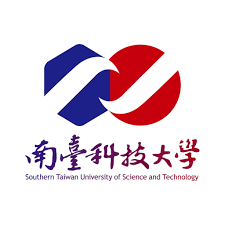The Traditional Chinese Medicine and Functional Foods Research Laboratory
Research Field
I hold a Ph.D. in Science from National Taiwan University, where my research focused on the anti-depression mechanisms of garlic essential oil. I completed my Master’s in Molecular Medicine and Bioengineering, concentrating on the prediction of lung cancer metastasis. Currently, I serve as an Associate Professor in the Department of Biological and Food Technology at Southern Taiwan University of Science and Technology. My research primarily focuses on functional foods, gut microbiota, and their impact on both mental and gynecological health. I have published research on the bioactive properties of various plants, including ginseng, Poria, and garlic essential oil, emphasizing their roles in the gut-brain axis and their therapeutic potential for gynecological conditions. Additionally, I am exploring the functional applications of food fermentation and the reuse of food by-products in promoting health.
Our research lab focuses on the development and validation of functional foods, gut microbiota interactions, and food fermentation technologies to enhance human health. By integrating biotechnology, molecular analysis, and microbiological techniques, we aim to explore the bioactive properties of various food components and their therapeutic potential.
- Functional Foods Research: We screen and develop promising food-derived bioactive compounds, validate their efficacy through cell-based and animal model studies, and analyze their molecular mechanisms to support functional food innovation.
- Gut Microbiota Research: We investigate the role of gut microbiota in health and disease, with a particular focus on the gut-brain axis. Our studies explore how gut dysbiosis influences neurological disorders such as depression and autism, examining mechanisms involving neurotransmitters, gut permeability, and inflammatory responses.
- Fermented Food Research: We utilize microbial fermentation to enhance the bioavailability of functional compounds and valorize food by-products. Our research aims to improve nutritional quality, promote gut health, and contribute to sustainable food systems.
Research on Functional Foods: In response to the growing demand within the functional food industry, my research integrates biotechnology to screen or develop promising food products. Through cell-based experiments and various animal models, their efficacy is validated, and active components are analyzed and quantified. Further exploration of the molecular pathways involved is conducted to understand their mechanisms of action.
Gut Microbiota Research: Recent studies indicate that alterations and imbalances in the gut microbiota (gut dysbiosis) play a critical role in the gut-brain axis, affecting mental health conditions such as major depression and autism. These effects may arise through changes in neurotransmitters (including tryptophan, dopamine, serotonin), gut permeability, or inflammation, which, in turn, impact brain function. By intervening with bioactive compounds, we explore the relationship between various stress-induced models and microbiota, further investigating the connection to the gut-brain axis through gut microbiota analysis and the positive effects of these bioactive compounds.
Fermented Food Research: Fermentation enhances the bioactive components in foods and provides a method to reutilize discarded food materials. Microbial fermentation processes allow for the recovery of nutrients and functional compounds, contributing to food sustainability and health promotion.
- Food Safety and Hygiene Management System Plan Evaluation Committee Member and Advisor, Tainan City Health Bureau
- Reviewer for International Journals
National Taiwan University - Ph.D.
● Institute of Food Science Technology, supervised by Prof. Lee-Yan Sheen
● Thesis title: Investigation the mechanism of antidepressant-like effects of garlic essential oil and its bioactive compound
National Chiao Tung University - M.S.
● Institute of Molecular Medicine and Bioengineering, supervised by Prof. Shinn-Ying Ho
● Thesis title: EMT-related genes for prediction of lung cancer metastasis
Taipei Medical University - B.S.
● School of Nutrition and Health Science
